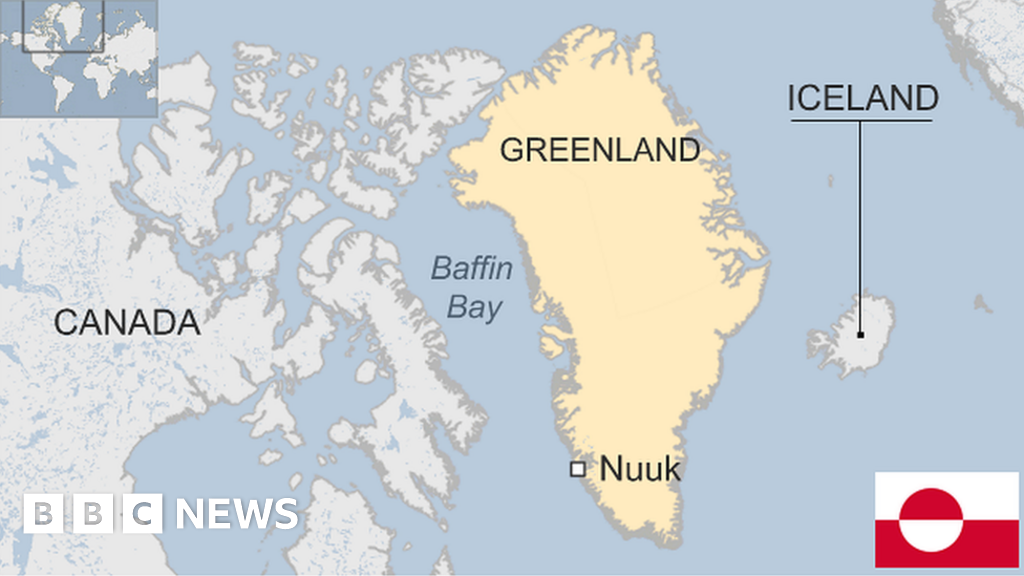Some key dates in Greenland’s history:
982 – Greenland discovered by the Norwegian, Erik the Red, who calls his discovery “Greenland” to make it more attractive. In 986 he returns with settlers.
14th-15th Centuries – Norse settlements disappear, perhaps at the onset of the Little Ice Age as temperatures fall significantly.
1721 – An expedition led by Danish-Norwegian missionary Hans Egede sees new Danish colonisation. A new settlement is established near present-day capital, Nuuk.
1940 – Denmark is occupied by Germany during World War Two.
1941-1945 – United States occupies Greenland to defend it against a possible invasion by Germany.
1950 – Denmark agrees to allow the US to regain the use of Thule Air Base which is greatly expanded between 1951 and 1953 as part of a Nato Cold War defence strategy.
1953 – Greenland becomes an integral part of the Kingdom of Denmark.
1968 – A USAF B-52 bomber carrying nuclear weapons crashes near Thule. Decades later, a BBC report says that despite earlier US claims to the contrary, searchers were only able to locate three of the four hydrogen bombs, external.
1979 – Greenland attains home rule following a referendum.
1985 – Greenland leaves the European Economic Community (EEC) over disagreement with EEC commercial fishing regulations and an EEC ban on seal skin products.
1999 – Danish High Court rules that Inuit were illegally exiled from their land in northern Greenland in 1953 to expand US airbase at Thule but denies them right of return.
2008 – Greenlanders vote in referendum for more autonomy, greater control over energy resources and granting Kalaallisut or Western Greenlandic status of official language in place of Danish.
2010 – Greenland’s ice sheet is shrinking faster and making a bigger contribution to rising sea levels, a study in the journal Science confirms.
2013 – Greenland ends the territory’s 25-year ban on the mining of radioactive materials such as uranium, leading to a boom in mineral resource exports.
2021 – Greenland bans all new oil and gas exploration in its territory. Government officials say the environmental “price of oil extraction is too high”.
Rain falls on the summit of Greenland’s ice cap for the first time in recorded history, which scientists attribute to climate change
Source link : https://www.bbc.com/news/world-europe-18249474
Author :
Publish date : 2024-01-15 08:00:00
Copyright for syndicated content belongs to the linked Source.
